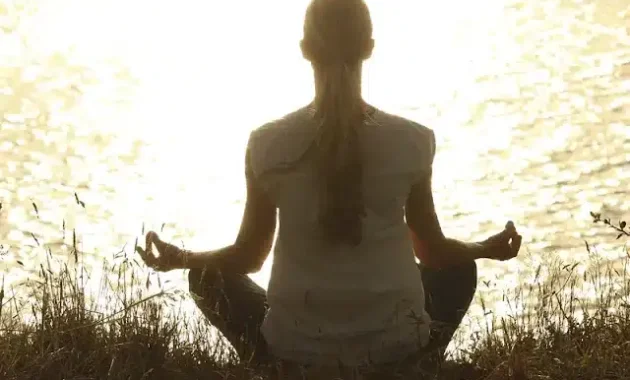Stress is a normal part of life. It’s a natural response to challenges or threats but can become problematic when chronic. Chronic stress can have a significant impact on your physical and mental health.
Natural stress relief techniques are essential for managing stress levels and promoting overall well-being. They provide a holistic approach to stress management and can help you lead a healthier, more balanced life.
This article explores the top natural stress relief techniques and how you can incorporate them into your daily routine. We’ll dive into the benefits of each technique and provide practical tips for getting started. By the article’s end, you’ll better understand how to manage stress naturally and live healthier lives.
Understanding the Causes of Stress
1. Physical Causes
Physical causes of stress can include a lack of exercise, poor nutrition, sleep deprivation, and chronic health conditions. These factors can lead to physical tension, fatigue, and overwhelming feelings, triggering stress.
2. Psychological Causes
Psychological causes of stress are often related to our thoughts and emotions. Common triggers include work-related stress, relationship issues, financial stress, and feeling under-resourced.
3. Environmental Causes
Environmental stress causes can include noise pollution, poor air quality, lack of nature exposure, and an overstimulating and fast-paced lifestyle. These factors can contribute to feelings of stress and discomfort, making it harder to relax and manage stress levels.
By understanding the causes of stress, we can better identify the stressors in our life and take steps to manage and reduce them. Doing so can create a more supportive environment for our well-being and health.
The Negative Effects of Chronic Stress
1. Physical Effects
Chronic stress can seriously affect our health, including headaches, digestive problems, increased blood pressure, and a weakened immune system. It can also lead to long-term health issues such as heart disease, obesity, and type 2 diabetes.
2. Psychological Effects
Stress can also have significant psychological effects, including anxiety, depression, mood swings, and irritability. Chronic stress can also lead to feelings of burnout and emotional exhaustion, which can have a significant impact on our quality of life.
3. Social Effects
Stress can also have adverse social effects, such as strained relationships, decreased productivity, and a sense of isolation. It can lead to further feelings of anxiety and overwhelm, making it even more challenging to manage stress levels.
It’s essential to understand the adverse effects of chronic stress so that we can take action to prevent and manage it. By using natural stress relief techniques and taking care of our physical, psychological, and social well-being, we can protect ourselves from the harmful effects of chronic stress.
Natural Stress Relief Techniques
Stress can have a significant impact on our health and well-being. The good news is that many natural stress relief techniques can help you manage stress and improve your overall health and happiness.
This section will explore some of the most effective natural stress relief techniques, including exercise, mindfulness meditation, breathing techniques, and aromatherapy.
Whether looking for a quick stress reliever or a long-term solution, these natural stress relief techniques have been proven to help people manage stress and improve their overall well-being.
1. Exercise as a Natural Stress Reliever
Exercise is proven to relieve stress and improve mental and physical health. Regular physical activity releases endorphins, which are natural mood boosters. Additionally, exercise can help improve sleep and increase energy levels, both of which can reduce stress.
Exercise provides several benefits for reducing stress, including improved mood, reduced anxiety and depression, and enhanced self-esteem. Additionally, physical activity can help you feel more in control of your body and your life, which can boost your confidence and help you better handle stress.
Various exercises can help relieve stress, including aerobic activities like running or cycling, strength training, and yoga. To find the best form of exercise for stress relief, it’s essential to experiment and see what works best for you. Whether it’s a high-intensity workout or a relaxing yoga class, the key is to make exercise a regular part of your routine.
2. Mindfulness Meditation
Mindfulness meditation is a simple yet powerful tool for reducing stress and promoting mental well-being. This practice involves focusing on the present moment and being aware of your thoughts, feelings, and sensations without judgment.
Research has shown that mindfulness meditation can help regulate the body’s stress response and improve mental health. Regular practice can help you feel more in control of your thoughts and emotions, reducing anxiety and stress.
Many mindfulness meditation techniques include body scans, breathing exercises, and guided meditations. To get started:
- Find a quiet place to sit or lie comfortably.
- Close your eyes, take a few deep breaths, and begin to focus on your breath.
- Pay attention to your thoughts, feelings, and sensations without judgment.
If your mind starts to wander, bring your attention back to your breath. Mindfulness meditation can become a powerful tool for stress relief with regular practice.
3. Breathing Techniques for Stress Relief
Breathing exercises are a simple yet effective way to reduce stress and promote relaxation. When we’re under pressure, our breathing becomes shallow and fast, increasing anxiety and tension. Practicing breathing techniques can slow down our breathing and calm our minds.
Breathing exercises work by affecting the body’s nervous system and promoting relaxation. By slowing down our breathing and increasing the amount of oxygen in our bodies, we can reduce feelings of anxiety and stress.
Many different breathing techniques can be used for stress relief, including diaphragmatic breathing, progressive muscle relaxation, and the 4-7-8 breathing technique. To get started:
- Find a quiet place to sit or lie comfortably.
- Close your eyes and begin to focus on your breath.
- Take slow, deep breaths and relax your body as you exhale.
- Repeat this for several minutes until you feel more relaxed and calm.
4. Aromatherapy for Stress Relief
Aromatherapy is the use of essential oils to promote physical and emotional well-being. Essential oils have been used for centuries to treat various health problems, including stress and anxiety.
Many essential oils are commonly used for stress relief, including lavender, bergamot, chamomile, and frankincense. These oils are believed to have a calming effect on the body and mind, promoting relaxation and reducing feelings of stress and anxiety.
No matter how you choose to use aromatherapy for stress relief, make sure to use high-quality essential oils that are pure and free of synthetic ingredients. And remember, you should always use essential oils with caution and under the guidance of a healthcare professional.
To use aromatherapy for stress relief, you can either diffuse essential oils into the air, apply them topically, or inhale them directly from the bottle. Diffusing essential oils into the air is a great way to fill a room with soothing scents. You can use a diffuser or add a few drops of essential oil to a bowl of boiling water.
Applying essential oils topically is another option. You can add a few drops of essential oil to a carrier oil, such as coconut oil, and massage it into your skin. It can help soothe and calm your body while providing a relaxing aroma.
Inhaling essential oils directly from the bottle is a quick and easy way to experience their benefits. Hold the actual oil bottle under your nose and take a deep breath. It can help clear your mind and reduce stress almost instantly.
Incorporating Natural Stress Relief Techniques into Your Daily Routine
Incorporating natural stress relief techniques into your daily routine can significantly impact your overall well-being and help you manage stress more healthily. Here are some tips on how to make it happen:
When incorporating natural stress relief techniques into your daily routine, it’s essential to start small and set realistic goals. It will help you avoid feeling overwhelmed and increase your chances of sticking to your new routine. Choose a stress relief technique that appeals to you, and aim to practice it for a few minutes each day. Over time, you can gradually increase the duration and frequency of your practice as you become more comfortable.
It can be easy to let stress relief activities fall by the wayside, especially when life gets busy. To ensure you have time for natural stress relief techniques, prioritize them and make them a non-negotiable part of your daily routine. Set aside time in the morning or before bed, or try practicing while you’re on your lunch break at work.
Having a support system can also be helpful when trying to incorporate natural stress relief techniques into your daily routine. Consider enlisting the help of a friend or family member who is also interested in stress relief and sharing your experiences with them—having someone to hold you accountable and provide encouragement can be a great motivator.
By setting realistic goals, making time for stress relief activities, and creating a support system, you can effectively incorporate natural stress relief techniques into your daily routine and lead a healthier, less-stressed life.
Conclusion
This article explored various natural stress relief techniques, including exercise, mindfulness meditation, breathing techniques, and aromatherapy. Each method has unique benefits for reducing stress and promoting overall well-being.
It is important to remember that stress can seriously affect our physical, psychological, and social well-being if left unchecked. Incorporating natural stress relief techniques into your daily routine can help you manage stress healthily and effectively.
Relieving stress is crucial for a healthier mind and body. Natural stress relief techniques can reduce stress levels, improve your overall well-being, and help you live a happier life. So, commit to incorporating these techniques into your daily routine and start enjoying the benefits of a stress-free life.
FAQs:
What are the best natural stress relievers?
Various natural stress relievers available can help reduce stress, including exercise, deep breathing, yoga, meditation, spending time in nature, socializing, getting enough sleep, eating a healthy diet, and engaging in creative activities.
Can natural remedies help with stress and anxiety?
Yes, there are several natural remedies available that can help with stress and anxiety. Some popular remedies include herbal supplements like valerian root, chamomile, passionflower, and ashwagandha, essential oils like lavender and bergamot, and natural teas like green tea and kava tea.
What are natural stress relief meditation and Mindfulness-Based Stress Reduction?
Natural stress relief meditation and Mindfulness-Based Stress Reduction can help reduce stress and anxiety. They involve practicing meditation and mindfulness, which helps to calm the mind and improve focus. These techniques can help to lower stress hormones, reduce anxiety, and improve overall well-being.
How can I get stress relief?
There are many ways to get stress relief, including practicing relaxation techniques like deep breathing and yoga, engaging in physical activity like exercise and sports, spending time in nature, getting enough sleep, eating a healthy diet, and seeking support from friends, family, or a mental health professional. You can also try natural remedies or take supplements that help reduce stress levels.
Are natural stress relief techniques safe for everyone to try?
Natural stress relief techniques are generally safe for most people to try. However, it’s important to note that some techniques, like certain herbal remedies, may interact with medications or have side effects. It’s always a good idea to consult with a healthcare professional before trying new natural remedies, especially if you have a medical condition, is pregnant, or are taking medication. Some stress relief techniques may not be appropriate for everyone, so listening to your body and adjusting your approach as needed is important.


